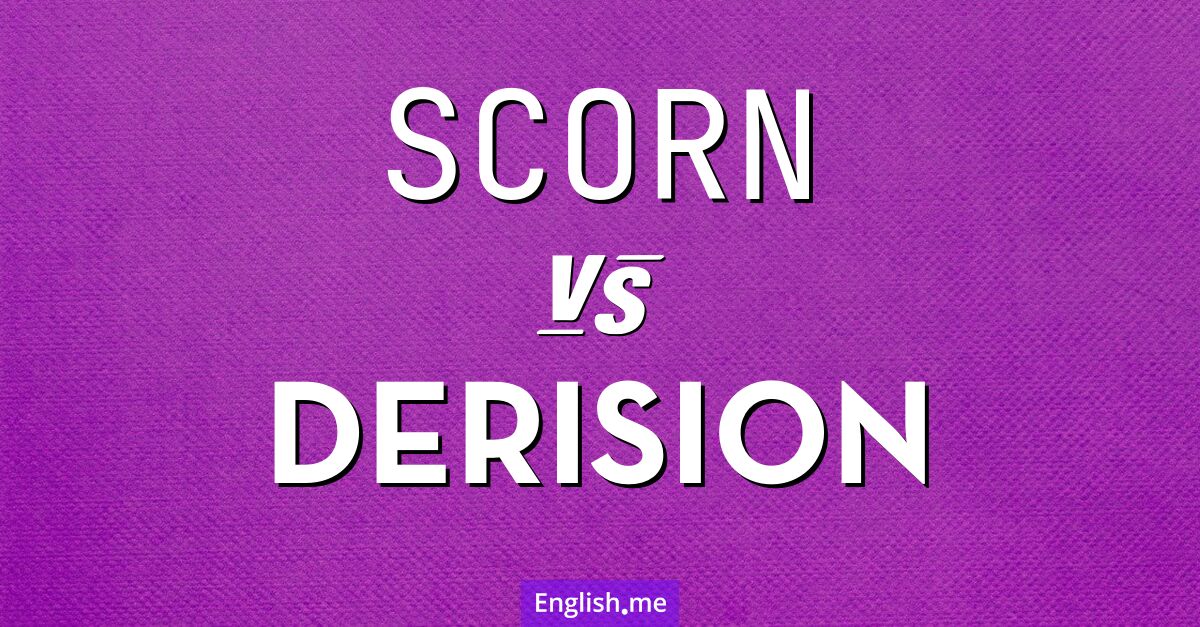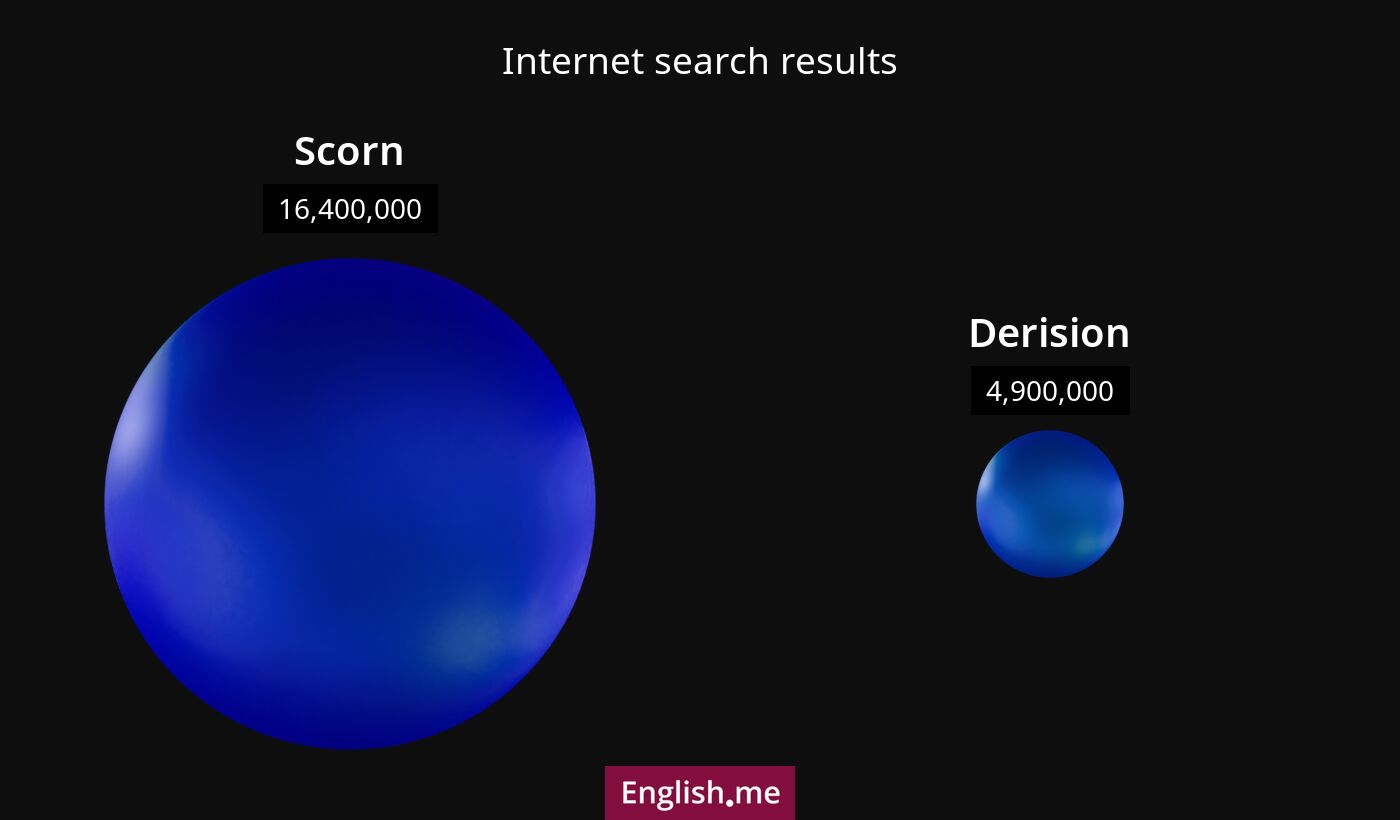"Scorn" vs. "derision": shades of contempt
Reviewed and edited by  Lloyd Cooper 31/12/2024, 14:45
Lloyd Cooper 31/12/2024, 14:45
English.me team member

 What is similar?
What is similar?
Both "scorn" and "derision" refer to feelings or expressions of contempt, disdain, or mocking towards someone or something considered unworthy or inferior.
 What is different?
What is different?
"Scorn" can be used as both a noun and a verb, indicating a strong feeling of disrespect or to openly reject or dismiss something with contempt. "Derision" is primarily used as a noun and emphasizes ridicule or mockery, often accompanied by laughter. While "scorn" conveys deep contempt, "derision" highlights the act of laughing at or making fun of someone or something.
 Which one is more common?
Which one is more common?

 Examples of usage
Examples of usage
Scorn- She looked at him with scorn after discovering the truth.
- He scorned the idea, believing it was beneath his expertise.
- The proposal was met with scorn from the committee members.
- His suggestion was greeted with derision by his colleagues.
- They laughed in derision at her unconventional outfit.
- The novel initially faced derision but later gained acclaim.

 English
English español
español française
française italiano
italiano deutsche
deutsche 日本語
日本語 polski
polski česky
česky svenska
svenska Türkçe
Türkçe Nederlands
Nederlands